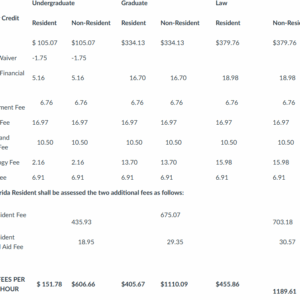Campus Life | July 20th, 2020
COVID-19 Affects Students With Learning Disabilities
By: Kayla Grant Dixon

Amid the transition to remote learning, some students still feel pressured to perform to the best of their capabilities. Although the transition from in-class lectures to online classes may have gone smoothly for others, students with intellectual disabilities feel faced with more troubles.
Common learning disabilities, such as ADHD, dyslexia, ADD and autism, can cause learning blocks for students that prevent them from performing as well as their counterparts. However, with the proper resources and learning accommodations, their success is unencumbered. As COVID-19 forced courses to be conducted remotely, students with learning disabilities have encountered some technical difficulties of their own.
Paul Clermons, a graphic design student with ADHD, said that his Public Speaking course was most difficult to manage during the end of the spring semester. With online classes, it was harder for him to focus and even difficult to obtain the extra time needed for his test and quizzes.
Clermons said it was important to communicate his needs to his professors rather than rely on them to check on him. Responding to his frustration, his professors asked him what accommodations from traditional in-person classes would he need. He addressed that he still needed extended time on tests and quizzes.
“It was hard for me to get [extra time] because of the Honorlock system,” Clermons said.
Honorlock is one of the many lockdown browsers used by professors for tests and quizzes to ensure academic integrity and hinder cheating. These systems often come with timers as an additive measure to proctor exams. Clermons felt that he couldn’t adapt quickly to the online learning style when the style itself required certain measures that could never fully accommodate his needs.
Tia Huie, a third-year Health, Leisure, and Fitness Studies major from Tallahassee, Fla., suffers from manic depression and bipolar disorder. Her main difficulty with the transition is not being able to get an adequate learning experience when taking hands-on classes like First-Aid Care and Aquatics online.
Huie uses the accommodations provided by the Center for Disability Access and Resources (CeDAR) which provides many alternative measures in lieu of regular class procedures that hinder her learning. Yet virtually, accommodations like alternative locations to take quizzes and tests aren’t provided for her current remote summer courses, so her disorders still take a toll on her health.
“I suffer from manic depressive disorder and bipolar disorder so I get distracted and lose focus easily during class and sometimes causes me to miss class,” Huie said. “Before, my professors would be very understanding and always informed me if I needed anything just let them know and it always worked out in the end.”
However, Huie says now it is harder to communicate her issues virtually with the digital barrier between herself and her professors.
A-Chai’a Jackson, a broadcast journalism student with ADHD, had a slightly different experience. After returning home to Bushnell, Fla., for spring break and never returning to campus again, Jackson was forced to adjust to his new reality with online learning.
“My transition from in class to online wasn’t all that bad to be honest. It just required me to be a little more punctual with my studies and I had to communicate with my professor to assure that I was getting the proper attention needed to perform well despite the circumstances concerning COVID-19,” Jackson said.
Jackson believed that in a twist of fate online classes worked in his favor as they helped him troubleshoot some of his learning blocks.
“It was almost like shifting from in class to online was a blessing in disguise because it helped me recognize what I can do to better my habits as a student,” said Jackson. Fortunately, Jackson earned a 3.39 GPA for the spring term.
One struggle that Jackson did face, however, was the lack of learning styles that he could attain in a virtual setting.
“It’s different when you cannot receive the one-on-one attention you may need to help you. I am the type of person who prefers hands-on learning in order to receive proper knowledge and understanding of whatever material I am working on,” Jackson said. “One of the hardest parts about being remote and being removed from the classroom setting is not getting that ‘up-close-and-personal’ engagement.”
According to U.S. News, college students with learning disabilities seem to often only receive proper accommodations from their instructors if they receive official letters from the university’s disability service, such as FAMU’s CeDAR, stating their circumstances. Without these letters, students are forced to struggle.
Unfortunately this upcoming year, students may not only struggling with their online classes, but students with disabilities are struggling to receive the help they need as well. The pandemic has changed the proverbial normal, but university must do what is necessary to ensure the needs of the students are met.





